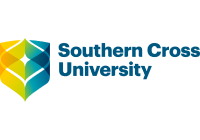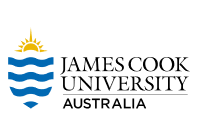Choosing the best MBA program to become a CEO involves considering curriculum focus, networking opportunities, leadership training, and alums' success. Top MBA programs—such as those from Harvard, Stanford, and Wharton—are renowned for producing leaders who excel in C-suite roles thanks to rigorous academics, mentorship from industry leaders, and immersive real-world experiences.
Specialised MBAs in Strategy, Entrepreneurship, or Leadership can be particularly valuable for aspiring CEOs as they develop the essential skills to lead organisations effectively. Read this blog to learn more about the best MBA paths for future CEOs and how they can influence your journey to the top.
Quick Links To Online MBA Programs
RMIT Online
Master of Business Administration (MBA) Online
- 2.7 years part-time, Reduced duration available
- Jan, Mar, May, July, Aug, Oct
- $4,560 per course, FEE-HELP available
Southern Cross University
Master of Business Administration (MBA) Online
- 2 years part-time
- Jan, Mar, May, July, Aug, Oct
- $2,990 per unit, FEE-HELP available
UTS Online
Master of Business Administration (Online)
- 2 years (minimum), Part-time
- 12 subjects | 7-week study blocks
- $4,250 per subject, FEE-HELP available
James Cook University
Master of Business Administration Global (MBA Online)
- 24 months , Part-time
- $3,700 per subject , FEE-HELP is available
- 12 (One subject per each 7-week study period)
Let’s get straight to the point
To become a CEO, choosing the right MBA program involves evaluating factors such as curriculum focus, networking opportunities, leadership training, and alums success. Programs from renowned institutions like Harvard, Stanford, and Wharton are known for producing top C-suite executives due to their rigorous academics, mentorship, and practical experiences.
In Australia, top MBA programs—like those at AGSM (UNSW), Melbourne Business School, Monash University, QUT, and UQ Business School—are highly regarded for fostering leadership skills through experiential learning and global exposure, with strong accreditation from bodies like AACSB and EQUIS.
These programs offer full-time and part-time options, allowing flexibility to suit different career stages and emphasising critical CEO skills such as strategic thinking, decision-making, and innovation.
Aspiring CEOs should consider program reputation, accreditation, curriculum alignment, faculty expertise, location, and cost. Accreditation, particularly from recognised bodies, ensures program quality and value in the job market.
Ultimately, the right MBA program provides a blend of theory and practical experience, access to influential networks, and development in leadership, paving the way for executive-level roles.
Top MBA Programs In Australia For Aspiring CEOs

Several Australian MBA programs have proven track records in producing successful business leaders. Here are some top options for aspiring CEOs:
1. Australian Graduate School Of Management (AGSM) MBA, UNSW
The AGSM MBA program at the University of New South Wales is well-regarded for producing successful CEOs. The program focuses on leadership, strategic thinking, and decision-making skills, including experiential learning and international study options. The program is accredited by both AACSB and EQUIS.
2. Melbourne Business School MBA, University Of Melbourne
Melbourne Business School's MBA program ranks highly in Australia and Asia-Pacific. This program emphasises global business skills and includes hands-on learning opportunities and overseas study. Accredited by AACSB and EQUIS, it prepares students for leadership roles across industries.
3. Monash MBA, Monash University
Monash University's MBA offers full-time and part-time options, focusing on leadership, problem-solving, and critical thinking skills. It also includes practical learning experiences and international study opportunities, with accreditation from AACSB.
4. QUT MBA, Queensland University Of Technology
The QUT MBA program offers flexible study options, emphasising leadership, creativity, and entrepreneurship. With AACSB accreditation, it provides a mix of classroom and real-world learning, preparing students for leadership roles in various sectors.
5. UQ Business School MBA, University Of Queensland
The MBA at UQ Business School focuses on developing strategic thinking and problem-solving skills. The program offers experiential learning and international study opportunities, and AACSB and EQUIS accredit it. It prepares graduates for top business positions.
These programs offer high-quality education, strong networking opportunities, and practical skills for aspiring CEOs.
MBA Programs In Australia
Australia offers many MBA programs, each with unique features. Understanding the different types of programs is the first step to choosing the right one for your career goals.
Types Of MBA Programs
Australian universities offer several types of MBA programs, each with distinct approaches:
- Full-Time MBA Programs: Full-time MBA programs typically span one to two years and require students' full commitment to their studies. Ideal for those seeking an immersive learning experience, these programs allow students to complete their degree faster by focusing solely on their education.
- Part-Time MBA Programs: Part-time MBA programs allow students to continue working while studying. Usually lasting two to four years, these programs offer greater flexibility in class schedules, often including evening or weekend sessions.
- Executive MBA Programs: These programs cater to mid- to senior-level professionals looking to enhance their leadership and management skills. These part-time programs are usually more condensed and focus on advanced business concepts, with classes held on weekends or in intensive modules.
Each program type has advantages, so it's important to choose based on your specific career goals, available time, and learning preferences.
Accreditation
Accreditation is vital when choosing an MBA program, as it confirms that it meets established quality standards. Major accreditation bodies for MBA programs in Australia include:
- AACSB stands for the Association to Advance Collegiate Schools of Business.
- European Quality Improvement System (EQUIS)
- Australian Business Deans Council (ABDC)
Programs accredited by these bodies assure high-quality education and are often valued by employers. Choosing an accredited program can increase job prospects and validate the credibility of your degree.
The Importance Of Choosing The Right MBA Program

Choosing the right MBA program is crucial for professionals looking to become CEOs. The right program provides:
- A well-rounded education combining business theory and real-world applications
- Enhanced leadership skills and practical experience
- Access to valuable networks, including alums and industry connections
- Awareness of current trends in business, technology, and global markets
However, selecting the right program could mean spending time and money on a course that aligns differently with your career goals. Hence, careful research is essential to avoid programs lacking adequate support, experienced faculty, or a strong alum network.
Things To Take Into Mind While Selecting An MBA Programme To Become A CEO
When selecting an MBA program, consider the following elements to make sure it complements your job ambitions:
- Reputation and Accreditation: A school's reputation and accreditation can affect your MBA's value and employability. Look for programs recognised by bodies like AACSB and EQUIS to ensure quality and credibility.
- Curriculum and Specialisations: Different MBA programs offer various specialisations, such as entrepreneurship, marketing, or international business. Choose a program with coursework and specialisations that align with your goals, offering practical learning opportunities like case studies or consulting projects.
- Faculty and Resources: The quality of an MBA program can hinge on its faculty and resources. Look for programs led by experienced professors with real-world industry experience and institutions that offer resources like alum networks and career support services.
- Location and Network: The location of your MBA program can impact your professional network and job opportunities. Australian programs with strong industry connections are ideal for those planning to work in Australia, as they offer networking with local businesses and professionals.
- Cost and Financial Aid: MBA programs can be a significant financial investment. Consider tuition costs, available scholarships, and other financial aid options. Evaluate the program's return on investment in terms of potential career growth and increased earnings.
Conclusion
Getting an MBA can be a life-changing decision toward a CEO role, but choosing the right program is essential. Australia offers a range of MBA programs to equip you with the skills needed for executive leadership, from the prestigious Melbourne Business School to the innovative AGSM MBA.
By considering factors like program type, accreditation, curriculum, faculty quality, and cost, you can select an MBA programme that most closely matches your professional objectives and sets you on the path to becoming a successful CEO.
Frequently Asked Questions
Most MBA programs in Australia take between 1-2 years to complete.
Most MBA programs in Australia require applicants to have at least 2-3 years of work experience.
The cost of an MBA program in Australia can vary depending on the institution and program type. On average, full-time MBA programs can cost anywhere between AUD 50,000 to AUD 100,000, while part-time and executive MBA programs can cost between AUD 60,000 to AUD 150,000.
Yes, many Australian institutions offer online MBA programs. These programs offer flexibility for students who may need help attending campus classes.
Yes, many institutions offer scholarships for MBA programs in Australia. These scholarships are often based on merit or financial need.





